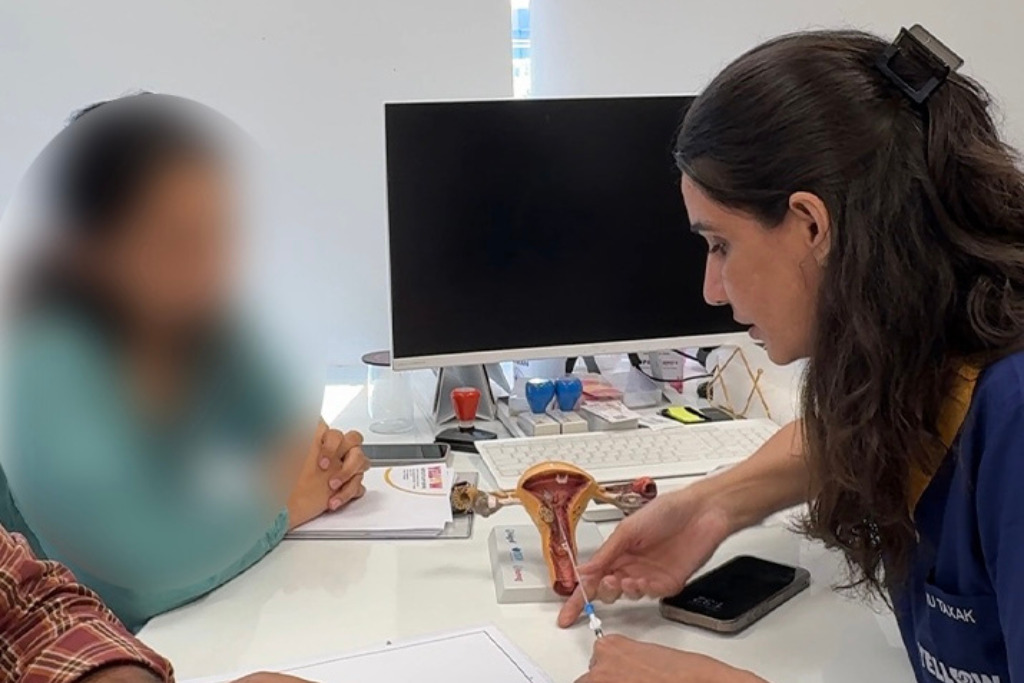Surviving with PCOS is like living under unexpected weather conditions. Some Days, you feel the joys of spring or other days, you have to deal with a flood of mood swings. It must be agitating to manage endless hormonal changes, irritability, irregular periods and whatnot. If you could press a button to murder your PCOS forever, would you do it? For millions of women dealing with it, this feels like a dream out of league.
So, is it okay to wish for a life free from the devastating symptoms of PCOS or is reversing it just another myth? Can you treat it permanently or master some of the ways to manage it perfectly? When to visit the best IVF hospital in Gurgaon for promising solutions? Let’s explore all these to bid farewell to unmanageable waves of PCOS.
PCOS: A Brief Overview
Don’t you think we should first understand the syndrome before moving towards its treatments? Getting an insight into your body conditions will surely help you build an optimistic approach. So, PCOS, the seemingly immortal grapple, is the formation of a few or more cysts in the ovaries. Expanded as Polycystic Ovarian Syndrome, it involves the growth of tiny fluid-filled sacs inside one of both ovaries. This situation then leads to a lack of ovulation and altered hormonal changes attributed to its characteristics.
Symptoms of PCOS: Exploring the Warning Calls
How can one identify whether they have PCOS or not? What if you didn’t notice it for many months? To avoid such situations and stay a step ahead towards your health, let’s understand the most common symptoms of PCOS:
- Unexplained weight gain
- Acne Vulgaris or aces on the face with accumulation of pus cells
- Irregular periods or difficulties in menstruating
- Menstruation may prolong for more days than usual
- Females might complain of heavy bleeding during periods
- Increased hair growth on the face, chest, belly and back
- The abnormal hair growth begins to thicken and get darker in colour
- Infertility, many women face difficulties in getting pregnant or even experience miscarriages

So, if you notice any of the above symptoms, do not delay in consulting at the best Gurgaon IVF centre to avoid future complications. Getting in touch with a fertility specialist will help you deal with PCOS smoothly.
Understanding Treatment Options: Coping Up with the PCOS
If you are suffering from PCOS, it might be a fairytale for you to discover promising solutions and reverse it permanently. However, some approaches can allow you to deal with it in the best possible way. Let’s make this dreamy life come true by implementing the below-mentioned solutions:
- Exercise: According to a JAMA Network article, 2024, among total females with PCOS, 43.2% were found to be obese(source).Thus, planning a workout session in your day will lead you towards better weight management to avoid obesity. Also, as the calories are continuously burning, insulin levels can be properly maintained.
- Diet: Your health is an exact reflection of what you eat. Thus, mindfully altering your daily food intake will help you stay a step ahead. Like, you have to avoid consuming junk and oily foods. Also, add fibres to your plate for better digestion. Keep a check on your magnesium and iron levels.
- Hormonal Birth Control: Now, it may sound strange to you, but don’t worry; doctors suggest it as a potential treatment for PCOS. If the above two options are not helping, you can take birth control pills under the guidance of a healthcare provider to regulate your menstrual cycle and control acne and hair growth.
Insulin-sensitizing Medicine: These medicines function by assisting your body in processing insulin. A controlled level of insulin is found to relieve many of the females dealing with PCOS.
Looking Forward
Living a life of uncertainties with PCOS might feel like cracking a mountain. Sometimes you may even feel defeated and think of giving up. But trust me that’s not the option. Proper management with hopefulness will surely pave your way towards improved reproductive health.
If you are finding yourself under the blues, consider visiting Yellow IVF for promising and personalised solutions.




